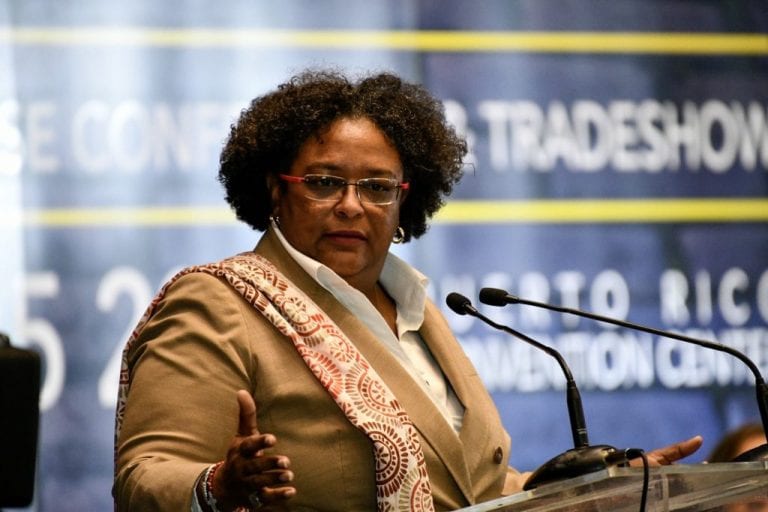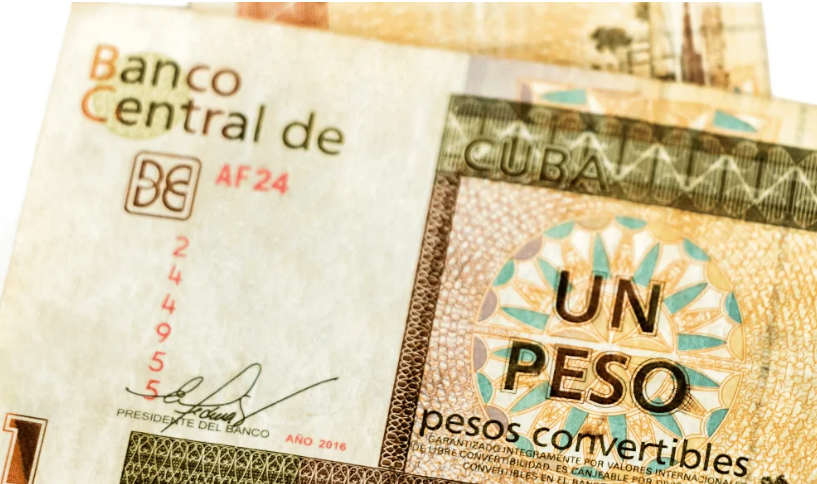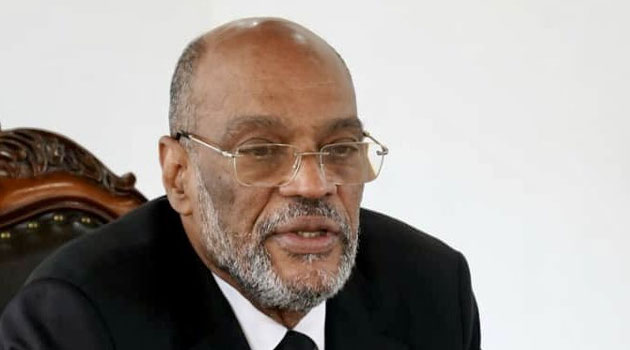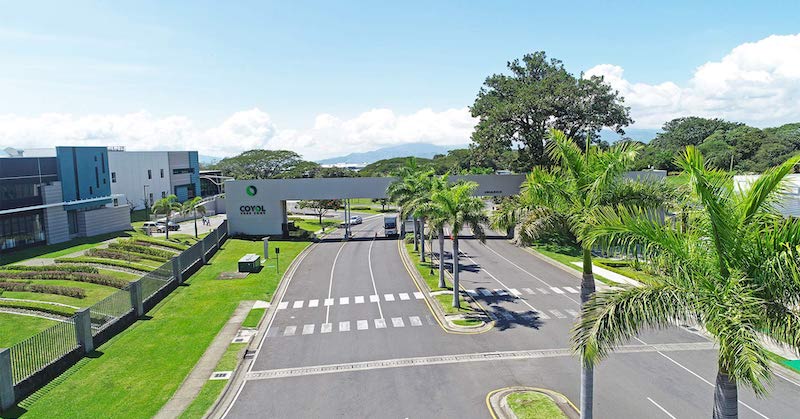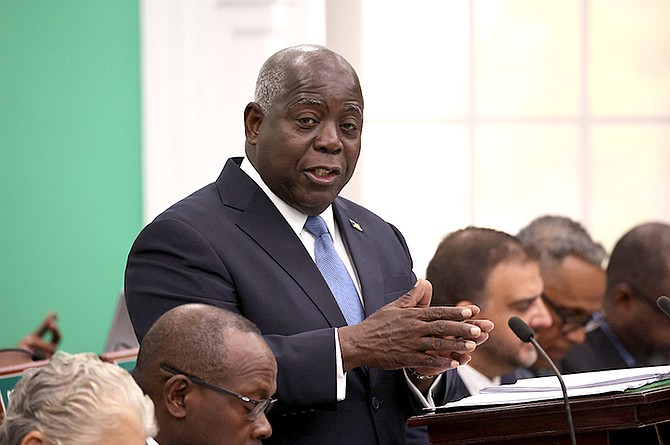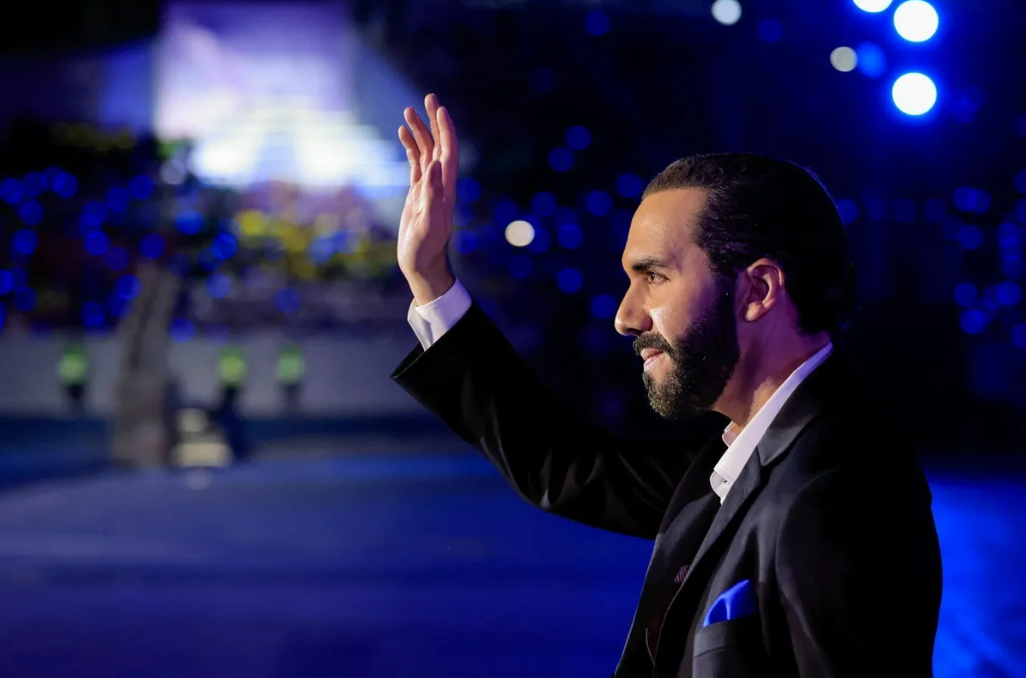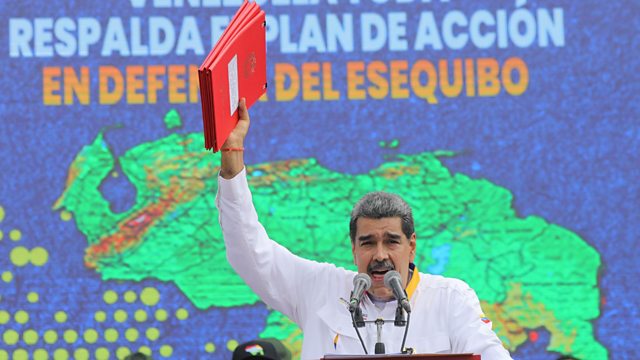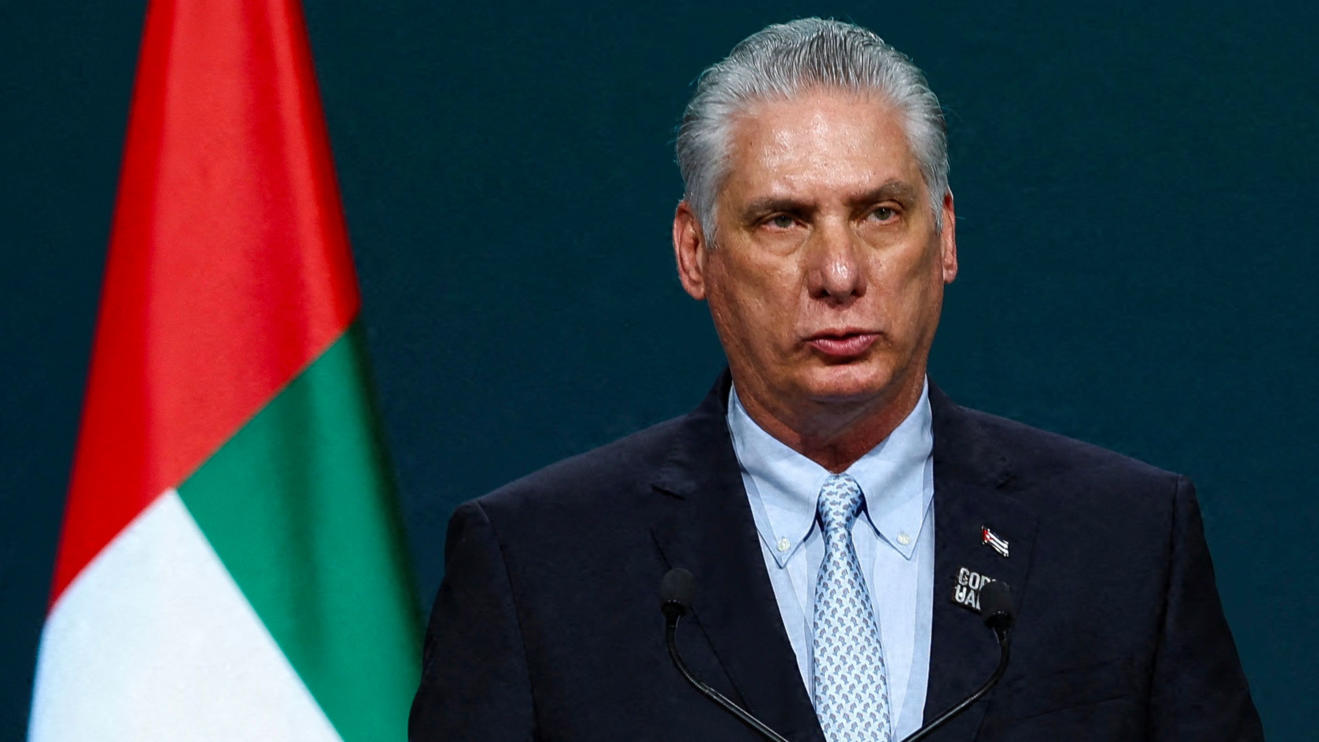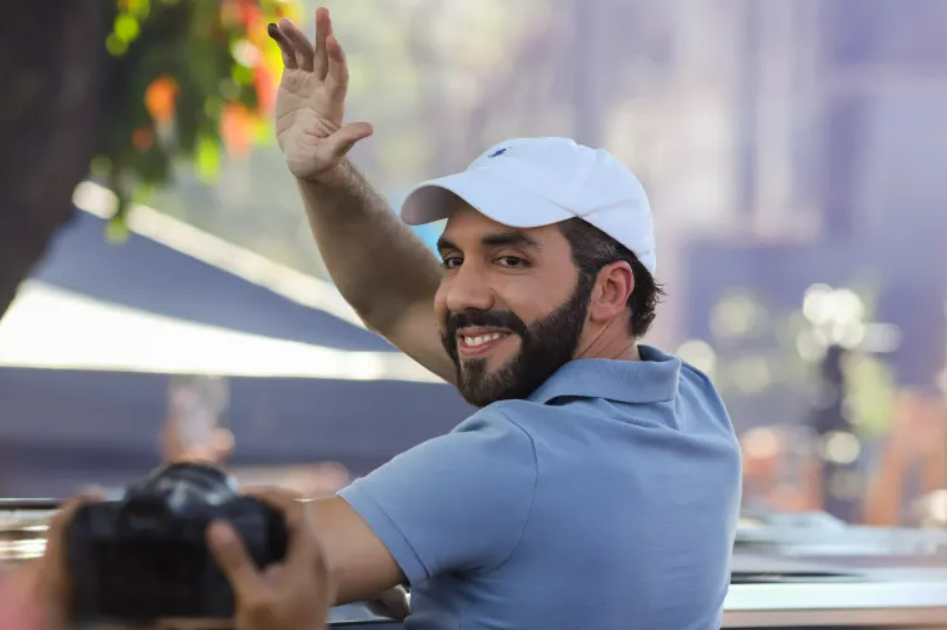Research & Analysis
Research Publications from The Caribbean Council
For over four decades, The Caribbean Council has been a market-leading source of research and analysis on the Caribbean, Cuba and Central America, providing our subscribers and members with indispensable, weekly digests of political developments, business news and investment opportunities across the region.
Made up of regional and multinational companies, major international business consultancies, diplomatic corps and Foreign Ministries around the globe, our subscribers and members are kept on the cutting edge of what’s happening in the region, and why it affects them.
Research & Analysis
To find out why, follow the links below to read a selection of recent lead articles featured in our research publications, including Caribbean Insight, Central America Briefing and Cuba Briefing.
If you would like to join our members and subscribers in receiving the latest analysis on your region of interest, please click Subscribe. To receive a month’s free access to our Research Publications, please click Free Trial.
The View from Europe and The Business of Tourism are fortnightly columns by David Jessop, Consultant and Non-Executive Director of The Caribbean Council. The columns are free to access and can be read in full, alongside a selection of our publicly available reports and media appearances.
“Caribbean Insight provides an informative, yet concise overview of the principal events in the region. We find it invaluable in keeping us up to date with current affairs and political insights.”
Ruth Euling, Area Sales Director, Latin America and the Caribbean
De La Rue Currency
“Caribbean Insight provides at a glance, a roundup of the macro business issues and opportunities in the Region – allowing a region focused 5 minute, weekly update. I am not sure how one would gather that information effectively without it!”
Charles Whitaker, Partner, Brown & Co
Read our latest research
3rd May 2024
The favourite for Panama’s election, José Raúl Mulino, faces a Supreme Court decision on the validity of his candidacy. Mulino’s running mate, former President Ricardo Martinelli was found guilty of money laundering and sentenced to over 10 years in jail and fined more than US$17mn for the New Business case. Martinelli claimed he was in fear of his life because of Laurentino Cortizo and is currently in the Nicaragua embassy in Panama City claiming political asylum. Panamanians go to the polls on 5 May with employment, public services and the country’s financial future as leading concerns. Mulino has made it clear to the OAS he intends to remain in the election through Sunday no matter what the CSJ says. A ruling is expected Friday after over three days of deliberation.
The full publication is available internationally on a subscription-only basis. SUBSCRIBE TO A FREE TRIAL
Photo: www.elinformador.com.co
29 April 2024
Cuba is making steady progress towards achieving its objective of receiving 3.2mn tourists this year, but still has far to go to achieve the 4.5mn visitors it received in 2019 before the pandemic.
Figures released recently by the island’s Office of National Statistics and Information (ONEI) show that in the first three months of 2024 total international arrivals numbers grew by 7.5% from 752,431 in 2023 to 809,238 this year.
The figures show numbers from Canada, Cuba’s largest market, increasing by 3.2% to 399,272 in the first three months of 2024 from 387,069 in the same three months of 2023, accounting for some 49.3% of all visitors so far this year.
Notably, visitor numbers from Russia continue to increase significantly as new airlift is added, promotional activity enhanced, and the Russian government actively encourages tour operators, airlines, and investors to take a greater interest in Cuba as a destination. ONEI’s first quarter figures show that Russian arrivals more than doubled, from 32,222 stopovers in the first three months of 2023 to 66,887 in the same three months of 2024.
In contrast, Cubans living abroad, a category Cuba counts separately, accounted for 75,386 of all international visitors arriving in the first quarter of 2024, a figure down from 83,663 recorded in the same three months of 2023.
For the month of March, international visitor numbers arriving were up 6.7% at 281,139 compared to the 263,465 received in March 2023. The arrivals numbers for March this year show, in addition to significant growth from Canada and Russia, the island’s other leading visitor markets were the United States with 46,717 arrivals, and Germany with 22,097. Visitor numbers from other European source markets remained low, however, with Cuba’s principal European markets, France at 19,377, the UK 16,719, and Spain 14,036, all likely affected by US travel regulations. These now require anyone eligible to enter the US under its ESTA visa waiver scheme to apply for a US visa if they entered Cuba after 12 January 2021.
As the year progresses, Cuba is hoping to increase visitor arrival numbers particularly from Latin America. Announcing details of this year’s International Tourism Fair (FitCuba 2024), Cuba’s Minister of Tourism, Juan Carlos García, recently highlighted the promotional emphasis now being placed on increasing the number of travellers from Mexico, Colombia, Argentina, Brazil, and the rest of the Caribbean. This year’s fair takes place on Cuba’s from 1-5 May in Jardines del Rey located on the north coast of the provinces of Ciego de Ávila and Camagüey.
The Caribbean Council is able to provide further detail about all of the stories in Cuba Briefing. If you would like a more detailed insight into any of the content of today’s issue, please get in touch.
26 April 2024
The European Union (EU) has signalled its willingness to support the Dragon Pipeline between Venezuela and Trinidad and Tobago despite reimposition of US sanctions on Venezuela.
The 90-kilometre pipeline project between the two countries has been in the news in recent months following easing of sanctions on Venezuela and the granting of US waivers which were to allow the project to proceed.
In December 2023, the Government of Trinidad and Tobago signed an agreement with Venezuela for Shell and wholly state-owned National Gas Company of Trinidad and Tobago (NGC) to develop and produce natural gas from Venezuela’s Dragon field.
However, based on what the US sees as President Nicolás Maduro’s failure to allow free and fair elections under the terms agreed, the Biden Administration is now moving to reimpose sanctions which raise fresh questions about Dragon’s viability.
In a statement, the US government said that it would not renew a license that was set to expire this week which had broadly eased Venezuela oil sanctions.
Responding to the news, the Ministry of Energy and Energy Industries said that the non-renewal of the OFAC General Licence 44 “does not affect the Specific Amended OFAC licence that was issued to the Government of the Republic of Trinidad and Tobago on 17 October 2023”.
Péter Szijjártó, Hungary’s Minister of Foreign Affairs and Trade expressed Hungary’s support for the pipeline project when Hungary’s upcoming presidency of the EU commences in July under the EU’s rotating presidency.
In 2023, the EU proposed to include the Dragon Project in its Global Gateway Programme, along with a proposal to make Trinidad and Tobago’s petrochemical industry greener and more environmentally protected.
“The implementation of these two agreements will be started throughout our presidency term and we are committed to support you in the successful implementation of these two projects and to make sure the European support will be there for the entire length of these projects,” said Szijjártó.
Pressed in an interview with the Trinidad Guardian about whether the latest US sanctions could affect the implementation of the plan, Szijjártó expressed scepticism about the use of sanctions.
“We are against the approach of sanctions because we cannot recall one single sanction regime which would have been successful. We cannot recall any single sanction regime which would have hit – targeted – the leadership of that given country but we know many sanction regimes, which have, at the end of the day, harmed the people of that given country,” said the Foreign Minister.
“If there were no sanctions on the energy field, at least, new volumes of gas could be added to the global scene and also more gas could be added to the European market. If I understand it correctly, you as Trinidad and Tobago became a collateral damage of the sanctions imposed by the US on Venezuela because those sanctions have made it impossible to work more closely with the Venezuelans on energy matters and helping Europe to diversify,” he added.
It has been suggested by several analysts that following the sanctions imposed on Russia, Europe is urgently seeking other gas suppliers and resources. This urgency might lead the EU to relax its stringent compliance of US sanctions.
“The EU is, of course, very interested in diversifying its sources of energy, and in this context, the possible support to the exploitation of the Venezuelan gas field is of great interest. The EU does not have a final position on any support; however, we are willing to look positively at any proposals that are brought to its attention,” said Peter Cavendish, EU Ambassador to Trinidad and Tobago.
With Trinidad and Tobago oil and gas production seen as critical to the country’s economic health in the medium to long term, the government is keen to see the project, which Bloomberg has estimated would cost at least US$350mn and take between 36 to 48 months, move forward.
However, even with Hungary’s potential EU backing, US sanctions on Venezuela may yet affect the Dragon Pipeline and other oil and gas projects.
“If the US does things to Venezuela or about Venezuela, we can’t guarantee that some of those things would not be detrimental to us, as in fact, it has already been,” said Prime Minister Keith Rowley after the US’ Dragon waiver was first announced.
This is a lead article from Caribbean Insight, The Caribbean Council’s flagship fortnightly publication. From The Bahamas to French Guiana, each edition consists of country-by-country analysis of the leading news stories of consequence, distilling business and political developments across the Caribbean into a single must-read publication. Please follow the links on the right-hand side of this page to subscribe, or access a free trial.
19th April 2024
El Salvador returned to the bond market after four years with a US$1bn issuance at 12% that will mature in 2030. This is the largest debt in the country’s history and only four nations have issued sovereign debt above 10% since 2019. The rate could increase to 16% if El Salvador fails to reach an agreement with the IMF by October 2025 or get two of three risk agencies to raise their country grade. The IMF has said addressing Bitcoin risks is key to any agreement with El Salvador as well as fiscal consolidation, liquidity buffers and improved transparency. Analysts point out the new issuance suggests an urgent need for liquidity. Part of the new debt will be used to buy back old bonds with President Nayib Bukele committing to purchasing US$486.7mn of the US$1.75bn bond debt that matures between 2025 and 2029.
The full publication is available internationally on a subscription-only basis. SUBSCRIBE TO A FREE TRIAL
15 April 2024
Cuba’s Central Bank (BCC) has said that it hopes this year to reduce further the amount of cash in circulation and make more effective measures announced last August that seek to direct state and non-state enterprises and individuals to use banks and magnetic cards for most transactions.
The policy limited cash withdrawals to CUP5,000 per transaction, required the payment of all salaries, pensions, and benefits to be by electronic means, and sought to encourage all future economic activity to be e.commerce based. (Details Cuba Briefing 4 September 2023).
The measures formed a part of a response to surging inflation in both the official and unofficial economy, and an ongoing government liquidity crisis.
Speaking at this year’s just held annual audit meeting of the BCC, Julio Pérez, the Director General of Operations and Payment Systems, said that at the end of 2023, 91% of state entities and 74% of non-state forms of enterprise undertook their accounting activity through current accounts, but 30% of transactions still took place in cash compared to 68% carried out by electronic channels.
This was due in part, he said, to the obsolescence of technological equipment, including the country’s 800 ATMs “of which, on average, 77% dispense cash.” The meeting also heard that despite the measures introduced in 2023, the amount of cash outside the banking and financial system continued to grow “based on the presence of new actors in the national economy.” This group, it emerged are now permanently monitored by the BCC in relation to government’s macroeconomic stabilisation programme introduced in December.
Among the other problems BCC officials identified in moving to a near cashless society is the continuing resistance to making and receiving payments by electronic means by many smaller mainly non-state providers of goods and services, “inadequate control measures” to ensure compliance by regulatory bodies, the availability of cash at banks, and the variable levels of service offered.
Speaking at the BCC meeting, Cuba’s Prime Minister, Manuel Marrero said that additional incentives must now be sought to stimulate cash deposits in the country’s banks and an improvement in the quality and provision of services were required. He also stressed the centrality of the BCC to the 2
implementation of the country’s macro-economic stabilisation programme, to monetary policy, as well as to the elimination of exchange rate duality, and the technically illegal informal exchange rates widely used by most Cubans to change convertible currency.
Although there was no reported discussion about the steps Cuba might take to address the ever-widening gap between its two official exchange rates and the still surging street rate for the US Dollar and the Euro, the Minister President of the BCC, Juana Delgado, told the meeting that work is being done on “resizing the exchange market,” and that this year the BCC will identify projects that generate external income and promote the improvement of the flow of foreign currency to the country. The bank, she said, would additionally focus on expanding the Cuban banking and financial system’s international relations.
In her reported remarks, Delgado stressed that the BCC would this year seek to consolidate the banking process so that it involved the full participation of Cuban society, by engaging with “the providers of goods and services, regulatory authorities, local governments and non-state forms of management (MSMEs).”
Other planned actions, Delgado indicated, focus on standardising electronic payment systems nationally on all platforms, the design of new strategies which reduce the use of cash in transactions to stimulate deposits, and the adoption of measures that increase the availability of cash.
The BCC would also, she said, seek to attract new financing with an emphasis on enhancing the activities of Cuba’s export sector, create a new mechanism for the allocation and management of liquidity for all economic actors, and introduce measures that recover remittance flows. No details were provided.
11 April 2024
As international pressure mounts, four of the five Organisation of Eastern Caribbean States (OECS) countries which have citizenship by investment (CBI) programmes have agreed to set a minimum price for passport sales.
The compact, which is based on the six principles agreed by the OECS CBI countries during a roundtable discussion with the US in 2023, will see measures implemented to address concerns of western countries about their operation.
Starting 30 June 2024, Dominica, Grenada, St Kitts and Nevis, and Antigua and Barbuda have pledged to increase their golden passport prices to at least US$200,000, with some countries as much as doubling the current price of some categories.
These changes follow concerns from European and US regulators about irregularities in CBI schemes.
They aim to counteract financial improprieties linked to CBI passport sales, which have reportedly collectively issued 88,000 passports, including to individuals from Russia, Iran, and China, raising concerns of money laundering and corruption.
“We have professed to have a robust system that we go through in different layers of due diligence, and if somebody were to become a citizen of today and tomorrow morning the person goes and does something and finds himself in problem with the law, you can’t blame the program for that,” said Dominican Prime Minister Roosevelt Skerritt, as he defended his country’s programme following the UK’s move to end visa waivers for holders of Dominican passports in 2023.
The agreement also includes pledges such as exchanging data regarding CBI candidates to bolster transparency and supervision, instituting upgraded transparency protocols like divulging finances obtained through CBI, carrying out independent audits, cooperation with international countries in retrieving invalidated passports, and establishing a rule-making body.
“The parties agree to assign or to establish a regional competent authority to set standards in accordance with international requirements and best practices, and to regulate the programmes,” said the agreement, which some have since criticised for not legally binding the four countries to implement and adhere to the changes.
“It does not constitute a legally binding agreement and is not enforceable in any court of law,” says a clause in the agreement itself, with another allowing for it to be amended or terminated by unanimous consent of the signatories.
However, Prime Minister Skerritt has said that the islands are cooperating on the development of mutual legislation to address the concerns raised by European countries.
“As you know, there are countries within the OECS who have these programmes – Antigua, Dominica, Grenada, St Lucia, and St Kitts-Nevis”, and there is “the need for all of us to take certain actions to set aside the concerns which the EU in particular would have had with these programmes,” said Skerrit.
The agreement also speaks to marketing and promotional practices, establishing agreed-upon standards including making it clear to applicants that the CBI programmes requires a commitment to citizenship in the respective country, rather than merely participating in a passport scheme.
“Such standards shall prohibit marketing of CBIPS for granting of ‘visa-free access’ and the use of photographs of parties’ passports in advertisements,” said the agreement.
“This move will show the world that our four nations are responsible and serious about operating investment migration programmes that respect the rule of law, are sustainable and do not offend the interests of our brothers and sisters in the international community,” said St Kitts and Nevis Prime Minister Terrance Drew.
St Lucia, which currently has a CBI programme which offers passports (some reportedly at as low as US$100,000), declined to modify its programme at this time and did not sign the agreement.
Source: Caribbean Insight – Issue 8
5th April 2024
During a regional visit focusing on the Northern Triangle, US Vice President Kamala Harris earmarked a further US$1bn to the region. The funds will be used for projects that slow irregular migration northwards. This includes US$170mn to Guatemala for development, economic, health and security assistance to Guatemala. US$135mn of this will be distributed by USAID and used to conserve biodiversity, scale agricultural technology and improve health access to indigenous communities. Harris is looking to commit US$5.2bn in public-private partnerships to the region through the Central America Forward project.
The full publication is available internationally on a subscription-only basis. SUBSCRIBE TO A FREE TRIAL
28th March 2024
Barbados Prime Minister Mia Mottley has tabled what is largely being hailed as a pro-business budget for 2024/2025.
The budget followed estimates detailing an accrual-based total outlay of US$2.33bn, including US$1.71bn allocated for current expenditure and US$622.4mn earmarked for investments in capital projects and debt repayment.
While budgetary allocations to line ministries and other entities are usually the focus of budget speeches, Mottley spent a lot of time detailing changes to fiscal policy and investment strategy.
“There will be no new taxes… I am telling you up front that I will warn you that there will be some adjustments during the course of this year of a few rates that we will need the public to be able to bear,” began Mottley, as she focused on reviewing tax structures and improving financing access for both private and public sectors.
The Prime Minister announced a sweeping reform of corporate taxes, introducing multiple tiers of tax rates to bolster economic growth and innovation. Small businesses registered under the Small Business Act will benefit from a reduced tax rate of 5.5%, while a general 9% rate will apply to most other resident entities.
Additionally, resident entities that are part of multinational enterprises (MNEs) falling within a defined scope will face a 15% top-up tax. To further stimulate job creation and innovation, the reforms include refundable tax credits for employment and research and development activities. A new 4.5% tax regime has been created to govern intellectual property, designed to incentivise investment in intangible assets.
Mottley also revealed plans to establish “Business Barbados,” a state-owned enterprise designed to offer comprehensive support to local businesses from inception through their entire operational lifecycle. This initiative is poised to streamline business processes, with the Corporate Affairs and Intellectual Property Office (CAIPO) being integrated into the new entity.
Business Barbados will house two separate divisions within its structure: the Corporate Registry, to handle business registrations, and the Intellectual Property Division, to manage IP-related matters, enhancing the ease of doing business in Barbados.
The Prime Minister’s newly proposed tax incentives, effective from 1 April 2024, include a 25% non-refundable tax credit to enhance research in marine studies and the green economy; a 50% refundable credit for projects achieving net zero emissions; 50% refundable credit for local art purchases up to US$0.5mn; and a 50% tax credit for the development of entertainment and sports venues, and the construction of laboratories.
Notably, a significant 100% tax credit is introduced for local companies that invest in digitising, reengineering their business processes, and system upgrades, applicable within the same income year upon completion, from 1 April 2024 to 30 June 2025.
Mottley also unveiled financial assistance to enhance food production, including increasing the rebate on cow purchases to 80%, and providing significant rebates on hay, pastureland establishment, harvesting equipment, infrastructure repair and upgrades. Crop farmers are also in line to benefit from the US$2.6mn investment in irrigation infrastructure.
She also announced that the government will be significantly accelerating the drive to address renewable energy battery storage capacity in the country through direct negotiation amidst a backlog of applications totalling 323MW, with the current grid only able to absorb 100MW.
In his budget response, recently appointed Opposition Leader, Ralph Thorne criticised the government’s optimistic portrayal of the economy, urging them to disclose the real economic situation and address the impact of inflation on citizens.
“We are in an environment where this government is now employing the largest number of consultants ever in the history of political administration,” said Thorne as he ripped the spending of the Mottley Administration and identified areas of wastage and alleged corruption in government projects.
However, the budget has been positively received by the private sector by entities such as the Barbados Private Sector Association (BPSA) and members of the Barbados Chamber of Commerce and Industry (BCCI).
“We are extremely happy with the majority of the content of the budget. We’ve been asking for several years, if not longer, for ease of doing business, business facilitation, regulatory transparency, and the like,” said BPSA Chairman, Tricia Tannis. BCCI President, James Clarke said that the budget will “provide incentives in a more navigable regulatory environment to create simpler paths to unlocking private sector capital in the country”.
However, University of the West Indies professor, Justin Robinson criticised the budget as lacking detailed fiscal analysis and questioned the effectiveness of creating Business Barbados, another state-owned enterprise to improve the country’s business environment.
Robinson also focused on the use of additional tax credits and rebates, voicing scepticism of their ability to achieve intended outcomes, given the already low corporation tax rate. He also called for more clarity on initiatives such as renewable energy investment.
This is a lead article from Caribbean Insight, The Caribbean Council’s flagship fortnightly publication. From The Bahamas to French Guiana, each edition consists of country-by-country analysis of the leading news stories of consequence, distilling business and political developments across the Caribbean into a single must-read publication. Please follow the links on the right-hand side of this page to subscribe, or access a free trial.
Photo: caribbeannationalweekly.com
22nd March 2024
IADB is going to ramp up LatAm finance to US$112bn over the next decade following a capital increase of US$3.9bn and internal reforms. These changes will see IADB and its venture capitalist arm IDB Labs focus on fewer but larger loans. This comes after member nations expressed interest in financing specific projects such as Sweden guaranteeing a biodiversity project in the Amazon. IDB President Ilan Goldfajn wants more effective projects that have a greater impact. Examples of these would include waste management in the Dominican Republic and a $400mn green hydrogen investment in Chile.
The full publication is available internationally on a subscription-only basis. SUBSCRIBE TO A FREE TRIAL
Photo: (AP Photo/Jose Luis Magana)
18th March 2023
The outline of a possible approach to unifying Cuba’s multiple foreign exchange rates and addressing dollarisation has been published in Granma. The much-needed measure is widely believed to be the key determinant in the success or failure of government’s macroeconomic stabilisation reform package. (See Cuba Briefing 2 January 2024).
In a second commentary in a month to be published in the Communist party’s official publication by Joel Marill, an economist specialising in Strategic Macroeconomic Projections at the Ministry of Economy and Planning (MEP), he argues that because the price of currencies is transversal, addressing exchange rate policy in the short term is vital.
Marill writes that the issue forms an important part of the internal debate that is continuing in relation to the package of reform measures agreed in December as necessary to rectify past mistakes and create the conditions for future economic growth.
These discussions, he suggests, are in part focussed on “the implications of an official exchange rate of US$1 to CUP24 and another at US$1 to CUP120” (the Cadeca rate); both of which he describes as “clearly disconnected from the economic reality” of the informal market (currently at US$1 to CUP325). This he suggests, needs to be “formalised” and used “to stimulate national production and macroeconomic stabilisation.”
To this end he proposes a solution requiring “correct management” and recognition that it will be “one of the most complex transformations to undertake, in a scenario of currency restrictions and internal macroeconomic imbalances.”
Marill goes on to note that the two official exchange rates mean that national or foreign companies cannot directly access foreign currency. Instead, they must use a “complex and mostly inefficient centralised allocation mechanism” to legally exchange CUP “which overvalues the Cuban peso.” This he writes, severely impacts the export sector, limiting its ability to expand production, employment, and to create fresh foreign exchange.
By contrast, Marill argues, the informal exchange market used by the non-state sector and the Cuban population, “offers more flexible access to currency” at high prices, but is based on speculation and uncertainty, and excludes state and mixed companies.
To remedy this, the MEP economist proposes in the short-term the creation of a flexible scheme providing direct and legal access to foreign exchange for MSMEs, and state and mixed companies. This he suggests should be followed in the medium term by an approach that has as its strategic objective the gradual convergence and unification of the exchange rate “through successive iterations.” An approach, he believes, that would eventually enable the recovery of the “full sovereignty of the peso as the single currency” for internal transactions, creating also a single exchange rate for all external operations.
To achieve this far from easy sequencing and objective, he proposes “first, the relaunch of the official exchange market and, subsequently, the slow devaluation of the official exchange rate.” He also recommends that the informal exchange market be addressed by “the redirection” of the flows involved towards the formal financial system.
Although an institutionally complex task, he suggests that this could be achieved through three actions:
- The Central Bank of Cuba (BCC) setting an equilibrium exchange rate that is regularly modified by the movement in the supply and demand for the currencies the financial system receives and by underlying market conditions
- Providing foreign currency through the financial system to those who presently operate in the informal market
- And then, when foreign currency flows are oriented towards the formal financial system, granting state-owned companies gradual access to this market based on exports and the capture of foreign currency earnings in the financial system.
Marell recognises that there are risks attached in relation to money supply, and that there would be constant pressure for the Central Bank to depreciate the exchange rate. He suggests, however, that the monetary and fiscal transformation accompanying the opening of an official exchange market would enable the changes required to deliver the country’s macroeconomic stabilisation programme.
No alternative commentaries have so far appeared in Granma. Both by Marell were published after the appointment was announced on 2 February of Joaquín Alonso, the Minister President of the Central Bank, as the new Minister of Economy and Planning. Details of Marell’s earlier commentary on the macroeconomic stabilisation process can be found in Cuba Briefing19 February 2024.
The Caribbean Council is able to provide further detail about all of the stories in Cuba Briefing. If you would like a more detailed insight into any of the content of today’s issue, please get in touch.
Photo: cubaniatravel.com
15th March 2024
Prime Minister Ariel Henry has announced his resignation following a meeting of CARICOM leaders and other international allies.
“The government that I am leading will resign immediately after the installation of (a transition) council,” Henry said on Monday in a video address from Puerto Rico, as he thanked the Haitian people for the opportunity he had been granted.
“I’m asking all Haitians to remain calm and do everything they can for peace and stability to come back as fast as possible,” said Henry.
His resignation comes after the government extended a state of emergency in the Ouest Department, home to the capital, Port-au-Prince, to 3 April 2024, following a surge in gang violence.
The state of emergency saw attempts to introduce curfews and protest bans with little effect as gangs ramped up violence, including attacking prisons, freeing an estimated 3,500 prisoners.
Prime Minister Henry, seen as lacking legitimacy, had faced pressure to resign amid threats of civil war from gang leaders.
“If Ariel Henry does not resign … we’ll be heading straight for a civil war that will lead to genocide,” said the country’s most well-known gang leader, Jimmy “Barbeque” Chérizier, himself a former police officer.
“We ask the Haitian National Police and the military to take responsibility and arrest Ariel Henry. Once again, the population is not our enemy; the armed groups are not your enemy. You arrest Ariel Henry for the country’s liberation,” said Chérizier.
Despite growing pressure, Henry had so far refused to resign. According to reports, the embattled Prime Minister has been unable to return to his country following a trip to Nairobi, Kenya where he signed an agreement with President William Ruto for the deployment of police officers in the UN-backed mission to Haiti.
However, Henry’s plane was forced to land in Puerto Rico as the main airport in Port-au-Prince remains under siege by gangs. Sheila Angleró Mojica, spokesperson for Puerto Rico’s Governor, confirmed Henry’s arrival in San Juan, while Haiti’s closest neighbour, the Dominican Republic confirmed that requests by the US and Henry for permission for his plane to make an “indefinite layover in Dominican territory” were denied.
The US, as well as other countries and institutions, have evacuated non-essential embassy staff from Haiti amidst escalating gang violence. The Pentagon has also confirmed that it has deployed additional personnel to “augment the security” at its Port-au-Prince Embassy.
The escalating violence in the country has caused the international community to step up efforts to intervene. On Monday 11 March 2024, a meeting chaired by current Chairman, Guyanese President Irfaan Ali was convened in Jamaica by CARICOM and international partners including US Secretary of State Antony Blinken in an effort to eke out a way forward for the troubled Caribbean nation.
The “will seek to advance discussions on support for Haiti as well as the way forward for Haitian governance pursuant to Haitian-led and Haitian-owned solutions which have been facilitated under the guidance of the Caricom Eminent Persons Group (EPG),” said a press release from the office of Prime Minister Andrew Holness.
The meeting saw participation from leaders of The Bahamas, Barbados, Dominica, Grenada, Guyana, Jamaica, and St Vincent and the Grenadines, as well as eight international partner countries and the UN invited by the CARICOM Heads of Government.
Of note however was the physical absence of embattled Prime Minister Ariel Henry, who participated virtually. The Jamaica Observer reported that efforts to get Henry a flight from Puerto Rico were eventually “abandoned “as calls intensified for him to resign”.
“We acknowledge the resignation of Prime Minister Ariel Henry upon the establishment of a transitional presidential council and the naming of an interim Prime Minister,” announced President Ali at the post-meeting press conference.
Barbadian Prime Minister Mia Mottley conveyed that key Haitian figures have reached a broad consensus on the immediate formation of a presidential council. This council would play a pivotal role in appointing a Prime Minister, who, in collaboration with the council, would facilitate the formation of a government. Moreover, Mottley emphasised the necessity of establishing a provisional electoral council to move the country closer toward democratic elections.
President Ali said that the presidential council will comprise two observers and seven voting members including political stakeholders, the private sector, civil society and one religious leader. Members of the council will be ineligible to participate in the next election in the country.
Speaking at the press conference, Secretary of State Blinken announced that the US would increase its support for a UN-endorsed multinational security force aimed at assisting Haitian law enforcement in combating gangs, providing a further US$100mn. Additionally, US$33mn in humanitarian aid will be allocated, raising the total proposed US contribution to the force to US$300mn. However, according to a spokesperson for the UN, as of Monday, only less than US$11mn had been deposited into the UN’s dedicated trust fund.
This is a lead article from Caribbean Insight, The Caribbean Council’s flagship fortnightly publication. From The Bahamas to French Guiana, each edition consists of country-by-country analysis of the leading news stories of consequence, distilling business and political developments across the Caribbean into a single must-read publication. Please follow the links on the right-hand side of this page to subscribe, or access a free trial.
Photo: /FILE/Haiti Premature
8th March 2024
German pharmaceutical company Bayer announced that it will invest US$200mn in a new plant in El Coyol, Alajuela, Costa Rica. The site is currently installing equipment and acquiring certification to begin production of contraceptives by the beginning of 2025. The aim is to provide access to long-acting, reversible contraception to 100 million women in low-middle income countries by 2030. Further investment in its research and development station in Guanacaste will increase production and the workforce by 18%. Bayer has had a presence in Costa Rica since 1997.
The full publication is available internationally on a subscription-only basis. SUBSCRIBE TO A FREE TRIAL
Photo: Coyol Free Zone
4th March 2024
Jorge Pérez, the Commercial Vice President of Habanos SA, Cuba’s principal tobacco exporter, has said that sales of the joint venture’s cigars rose by 31% to US$721mn in 2023. He was speaking in Havana during the twenty fourth annual Habano Festival which this year was attended by more than 2,900 participants from 108 countries.
The growth, according to other Habanos executives, largely reflected market recovery after the COVID-19 pandemic and the increasing demand globally for “limited and exclusive” high end editions. It also responded, they said, to strong growth in global demand in the luxury market for premium cigars.
Speaking to the media in the margins of the festival, José María López, Habanos’ Vice President for Development, said that the outcome reflected the strong positioning strategy that had been developed for the company’s brands, its policy of permanent innovation including the launch of 31 new products, and improvements to its supply chain. By value, he said, the company’s most important market was China, followed by Spain, Switzerland, Germany, and the UK. In the Americas the principal markets were Mexico, Canada, and Cuba itself. Habanos sales by region were Europe (56%), followed by Asia-Pacific (21%), the Americas excluding the US (13%), and Africa and the Middle East (10%).
Separately, Luis Blanco, the Agricultural Director of the Tabacuba business group, confirmed that the present planting campaign for the 2024-25 harvest will see about 14,000 hectares planted from which some 20,000 tons of tobacco will be obtained, guaranteeing the industry’s production plans for 2025. He said that the province of Pinar del Río, Cuba’s largest producer, will plant 10,200 hectares of tobacco, with yields expected to be between 1.37 and 1.4 tons per hectare. In the case of covered tobacco from which the best leaf comes for Cuba’s premium cigars, he confirmed there are no problems with planting.
As reported previously (Cuba Briefing 19 February 2024) to try to achieve the optimum outcome, Tabacuba is now concentrating on having farmers with the best historical results plant in the best soil in the Vueltabajo tobacco massif. In mid-February Granma quoted a local official as saying that the supplies and fuel necessary for growers to conclude the campaign had been received. It additionally quoted Tabacuba as indicating that full recovery of the industry’s infrastructure will take at least two years with the 2024-2025 harvest envisaging 14,000 ha under tobacco, a figure still below that when Hurricane Ian crossed the Western end of Cuba in 2022. Farmers not able to plant tobacco are being encouraged to engage with a Tabacuba programme to plant other crops.
Habanos SA is a 50/50 joint venture between the Cuban state and Asia Uni Corp, a BVI registered company reportedly bringing together a consortium of Asian investors.
The Caribbean Council is able to provide further detail about all of the stories in Cuba Briefing. If you would like a more detailed insight into any of the content of today’s issue, please get in touch.
Photo by: www.cigaraficionado.com
1st March 2024
Weeks after rejecting an IMF call to implement a personal income tax on its citizens, The Bahamas has announced plans for the introduction of a corporate top-up income tax.
Speaking in his midterm budget communication to the nation, Prime Minister Philip Davis said that the country is moving towards implementing the Qualified Domestic Minimum Top-Up Tax (QDMTT).
The tax will target only multinational companies earning over €750mn (US$812.23mn) annually, aiming to generate US$140mn yearly.
“We are talking about very, very big companies. The QDMTT is a way to make sure these very big companies pay at least a minimum amount in taxes on their profits in every country where they do business,” said Davis.
The 15% tax is one of the controversial recommendations from the Organisation for Economic Cooperation and Development’s (OECD) ‘Pillar Two tax framework’ which calls for a common global approach to taxing large multinational companies.
“We have two interrelated goals, to make sure The Bahamas captures the tax revenues of these very large multinationals doing business here, and to use the fiscal space created by the new revenue to, among other things, provide substantial relief for Bahamian taxpayers,” explained the Prime Minister.
He made the argument that if The Bahamas opts not to levy the tax, other jurisdictions would do so.
“May I add here, Madam Speaker, that if we do not implement this Pillar Two tax on that multinational entity that is doing business in The Bahamas; if we don’t collect it here, they’ll have to pay that same tax in their home jurisdiction, and many of the multinationals doing business here prefer to pay us,” asserted the Prime Minister.
“We ought not to allow that opportunity to pas because they have to pay it anyhow. Why should they not pay it in the jurisdiction in which they are operating?” he asked.
Davis insisted that his government would not implement an income tax for domestic companies whose revenues exceed a particular threshold, at least in the near term. He however added that if such a tax were to be introduced, they would follow a “more equitable approach for Bahamian businesses”.
In an interview with the Tribune, Financial Secretary, Simon Wilson admitted that the government does not currently have precise data on the number of Bahamas-based firms affected by the tax, but said that it is expected to be a relatively small figure.
Probable candidates include major hotels and resorts like Atlantis (Brookfield), Baha Mar (Chow Tai Fook Enterprises), Sandals, RIU, and Warwick, all part of international chains. Additionally, Canadian-owned banks such as Royal Bank of Canada, CIBC, and Scotiabank, along with several operators in the international financial services sector, are also speculated to qualify.
The Tribune noted that entities like the Bahamas Telecommunications Company (BTC), affiliated with Cable & Wireless Communications (CWC) and Liberty Latin America, as well as Commonwealth Brewery, primarily owned by Heineken, and major oil companies like Rubis and Esso (Sol Petroleum), might also fall under the tax’s purview.
Some were surprised when the Prime Minister revealed that significant work has already been done to advance the plan of introducing the tax in a relatively short period of time.
“We have issued a consultative green paper on corporate income tax strategies for The Bahamas, and engaged in extensive bilateral discussions with various in-scope companies for Pillar Two in our jurisdiction,” said Davis on local sensitisation efforts.
He also said that the local tax authorities have engaged with international institutions such as the IMF to help guide what will likely be a relatively complicated implementation exercise.
“During the first two weeks of February, policymakers and our technical teams participated in a workshop facilitated by the IMF, in order to discuss policy design elements that would inform the legislative drafting exercise,” revealed Davis.
The government is aiming to have a draft of the new income tax legislation completed by May 2024 ahead of the 2024/2025 budget presentation. In the meantime, the Davis Administration has been exploring ways to have the tax accrue until the required law is passed.
“We have been advised that the retroactive implementation of taxes is not that uncommon in the developed world, and that these large companies who will be impacted would also be aware of it, and there are certain benefits to that approach,” said Financial Secretary Wilson, even as he conceded that work on designing the accrual mechanism remains “a work in progress”.
This is a lead article from Caribbean Insight, The Caribbean Council’s flagship fortnightly publication. From The Bahamas to French Guiana, each edition consists of country-by-country analysis of the leading news stories of consequence, distilling business and political developments across the Caribbean into a single must-read publication. Please follow the links on the right-hand side of this page to subscribe, or access a free trial.
Photo: Dante Carrer
23rd February 2024
El Salvador’s Tribunal Supremo Electoral has confirmed Nayib Bukele as President for the next five years. Félix Ulloa will return as Vice President. Bukele received over 84% of the valid votes cast with over 2.7 million. Manuel Flores of the Farabundo Martí National Liberation Front (FMLN) was second with 6.4% of votes. Bukele will have considerable power as his Nuevas Ideas party also garnered 54 of a possible 60 National Assembly seats. Various electoral observers including the Organisation of American States have expressed concerns about delays and “a lack of uniformity” in the final count. Four political parties have presented legal action to nullify the results. The country will return to the polls on 3rd March to vote in mayoral and Parlacen elections.
The full publication is available internationally on a subscription-only basis. SUBSCRIBE TO A FREE TRIAL
Photo: Latin America News Agency/REUTERS
16th February 2024
The Government of Guyana has revealed that satellite imagery provided by western allies are showing Venezuelan troop movements along the border in the disputed Essequibo region.
Guyanese authorities including Foreign Minister, Hugh Todd, and Foreign Secretary Robert Persaud have argued that the Venezuelan government under President Nicolás Maduro is violating the Argyle peace accord signed in St Vincent in December 2023.
“We are not surprised at the bad faith of Venezuela. We are disappointed, not surprised. Guyana has a history of entering bilateral discussions in good faith. Unfortunately, we cannot say the same thing about our neighbour to the west,” said Persaud in an Associated Press interview.
This latest escalation comes as ExxonMobil has announced plans to drill and appraise seven new wells within the Stabroek Block in 2024.
“The Liza field, the last time I looked, takes you pretty close to that (equidistant) line. We plan to drill two exploration wells west of Liza and Payara. The Trumpet Fish and Redmoth exploration wells are planned more in the middle of the Stabroek Block during the course of this year so it’s not inhibiting that activity in our plans,” said President of ExxonMobil Guyana, Alistair Routledge.
He revealed that the company intended to allocate approximately US$60mn to US$70mn for each exploration well. However, this expenditure might increase if additional data collection and stem drill tests become necessary.
Days later in a statement, Venezuela accused Guyana of granting illegal oil exploration rights and concessions in “a maritime area that is indisputably Venezuelan,” reserving the right to take any diplomatic action necessary.
“We believe that the contract that we have with the country is valid under the local law…also under international law, we have valid rights to the blocks in which we’re participating,” said Exxon’s Routledge even as he acknowledged that the escalation of tensions in Q4 of 2023 “made a lot of people nervous”.
The statement by Venezuela did not refute the military build-up but asserted its right to strengthen border defences. Vice President, Delcy Rodriguez had earlier asserted that Exxon’s plans are tantamount to a breach of the Argyle Declaration.
The country’s Defence Minister, Vladimir Padrino was more forceful in his response to the drilling plans.
“If ExxonMobil has a private security company represented by the Southern Command, and a unit of the Government of Guyana in the maritime space, that by right belongs to Venezuela, they will receive a proportional, forceful and legal response,” he wrote on X, formerly Twitter.
This reaction from Venezuela represents a departure from less aggressive rhetoric in response to earlier drilling by ExxonMobil in the disputed region.
According to a report by Demerara Waves, the company had previously “drilled Ranger, Tarpon and Tanager wells that are west of the Essequibo River with no response by the Nicolas Maduro Administration”.
However, in 2018, Venezuela’s navy intercepted two seismic research vessels, which were collecting data for American companies Anadarko Petroleum and ExxonMobil in the Essequibo Region after Maduro’s unilateral expansion of the country’s maritime border in 2015 when Guyana discovered oil.
Meanwhile, Guyanese President, Irfaan Ali has spoken about his government’s growing investment in the Guyana Defence Force (GDF).
The government has significantly increased funding for the army, doubling the allocation to GY$42.2bn (US$202.18mn). President Ali reiterated his dedication to non-aggression while enhancing vigilance against potential threats through military investments which aim to bolster both human and material resources, strengthen defence cooperation, and intensify surveillance of borders and the Exclusive Economic Zone (EEZ).
Guyana has also been enhancing its defence capabilities by engaging with global partners, notably the US. There have been several high-profile visits by US Defence officials including the Southern Command (SOUTHCOM) Air Force Commander.
“We always need partnership, and partnership has been the foundation for collective security across this Region. We’ve not only had the US, we’ve had the UK, we have the Netherlands, we have forces [in the Region like] French Guiana, and they have been doing their work as part of this collective security,” said GDF Chief Brigadier Omar Khan.
Presidents Ali and Maduro are expected to meet in March for a second summit on the border issue.
This is a lead article from Caribbean Insight, The Caribbean Council’s flagship fortnightly publication. From The Bahamas to French Guiana, each edition consists of country-by-country analysis of the leading news stories of consequence, distilling business and political developments across the Caribbean into a single must-read publication. Please follow the links on the right-hand side of this page to subscribe, or access a free trial.
Photo Credit: MARCELO GARCIA/AGENCE FRANCE-PRESSE/GETTY IMAGES

12th February 2024
Cuba’s Council of State has appointed Joaquín Alonso, the Minister-President of the Central Bank of Cuba (BCC), as Minister of Economy and Planning, removing Alejandro Gil from the post.
The decision to appoint Alonso and make other changes was revealed in a Council of State declaration on 2 February, published the following day in Granma under the minimal headline ‘Council of State approved cadre movements.’
Just days before, on 29 January as Minister, Gil had outlined to the Council of Ministers the timetable for implementing approved policy reforms intended to restore economic growth (Cuba Briefing 5 February 2024).
The declaration said that Gil, would be released from his responsibilities as both Deputy Prime Minister and Minister of Economy and Planning. The decision was taken, it said, with the prior approval of the Politburo of the Central Committee of the Cuban Communist Party (PCC) and on the proposal of President Díaz-Canel.
Radio Havana reported that the decision related to “movements of cadres in portfolios of great economic impact.”
Alonso will be replaced by Juana Lilia Delgado as Minister President of the BCC. Delgado has previously been Director of Operations and General Director of Treasury at the BCC, Vice Minister at the Ministry of Economy and Planning, and worked at Cuba’s Permanent Commission for Implementation and Development.
Alonso, who is 60, reportedly accumulated extensive management experience during his time at the National Bank of Cuba, Banco Popular de Ahorro, Cubalse Commerce and Services Corporation, the non-banking financial institution Casas de Cambio SA, and most recently as Minister President of the Central Bank of Cuba. He also served as provincial vice president of the Association of Economists and Accountants of Cuba.
In a further change, Dr Eduardo Martinez, President of Cuba’s highly successful BioCubaFarma business group, has been appointed Minister of Science, Technology and Environment, in place of Elba Pérez who had held the position for over 11 years. Dr Martinez, a deputy to the National Assembly, is respected for the innovative work he led on the development and production of Cuba’s pentavalent vaccine and the national role he played during the fight against COVID 19.
It was also announced that Alberto López, the Governor of the province of Villa Clara and a National Assembly Deputy, has been appointed as Minister of the Food Industry, replacing Manuel Santiago Sobrino.
The Council of State noted that “all the colleagues released from their respective positions were recognised for their effort and dedication in carrying out such high responsibilities and in the coming days they will be assigned new missions.”
Although there has been no further official comment on the decision to remove Gil, speculation continues as to whether it relates to the sudden decision in late January to delay at the eleventh hour the implementation of fuel and transport price rises announced in December. The increases formed a key part of an integrated group of measures intended to rectify past mistakes and generate renewed growth.
It is not now clear whether the overall package of measures agreed to late last year will be implemented within the timetable planned. They were first announced by the Prime Minister, Manuel Marrero, in December, although at the time Cuba’s President cautioned that they should only be introduced gradually due to their sensitive nature.
In an apparent expression of concern about the country’s economic and social fragility, and in response to many Cubans’ doubts about the impact of the proposed reforms, Díaz-Canel stressed at that time the need for the new policies to be implemented with great sensitivity. Ministers and government, he said, “must constantly study impacts, states of opinion, and make the necessary corrections.” (Cuba Briefing 2 January 2024).
In recent weeksformer President Raul Castro, PresidentDíaz-Canel, and the Secretary of the Central Committee of Cuba’s Communist Party, Roberto Morales, have all stressed “the decisive importance” of maintaining national unity this year. (Cuba Briefing 8 January 2024).
Gil’s departure from office additionally coincides with government’s recent admission that the 2021 economic ordering task failed, surging inflation, and a growing and huge variance between the official and street rate for the Cuban Peso.
Following his replacement as Minister of the Economy and Planning, Gil noted on X in a tweet addressed to President Díaz-Canel: “It has been a pride and an honour to work alongside you in the service of our people and our Revolution. As always, I’m at your command, to continue, “ to which Díaz-Canel replied by sending a “Grateful hug” to all those replaced, noting that “they gave their energies in very hard years for the country” and wishing success to the new appointees.
The Caribbean Council is able to provide further detail about all of the stories in Cuba Briefing. If you would like a more detailed insight into any of the content of today’s issue, please get in touch.
Photo: Reuters/Amr Alfiky
9th February 2024
Despite incumbent President Nayib Bukele declaring himself the winner of El Salvador’s election, days after polling the final results have not been verified. Problems with electronic voting, voting abroad suffering early closures and local issues have contributed to a chaotic ending. On election night, Bukele stated he had over 80% of the vote and would get 58 of 60 seats in the National Assembly. With 98.7% of votes tallied, Bukele’s Nuevas Ideas party won with 2.67 million votes. The next highest was FMLN with 201,705. The result is likely to be declared official on Friday morning. Regional Presidents and US authorities have called to congratulate Bukele on a re-election which critics say is constitutionally invalid. Some opponents have stated they are considering legal action once the results are published.
The full publication is available internationally on a subscription-only basis. SUBSCRIBE TO A FREE TRIAL
Photo: Salvador Melendez/AP








